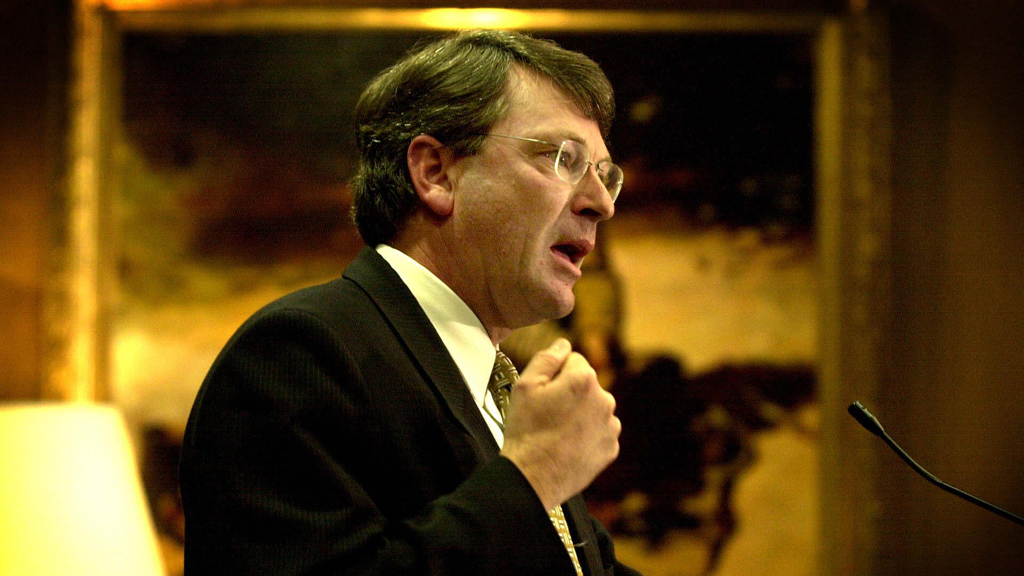Lynton Crosby: who is Cameron’s new strategist?
The Australian political strategist who twice brought glory to Boris Johnson was hailed as “master of the dark arts” when he first worked with the Conservatives. Can he lead them to success in 2015?

Photos courtesy of The Australian
With the Conservative party’s countdown clock showing a mere 900 days to the May 2015 general election, David Cameron has announced Lynton Crosby as his chief political strategist to guide his election campaign.
It was a move endorsed earlier in November by London Mayor Boris Johnson, who said he was a “great campaign manager” and urged the prime minister to “break the piggy bank” to get him on board. His recommendation is unsurprising given that Mr Johnson has twice claimed mayoral victory, bucking the national trend which saw the Conservatives losing seats across the country, after benefiting from the Australian’s strategy skills in 2008 and 2012.
According to a close observer of Tory politics, the Australian was crucial to the success of Mr Johnson’s campaign. “It was Lynton who instilled a sense of discipline into Boris,” he told Channel 4 News. “Lynton gave him a bloody great kick up the backside in the Christmas holidays in 2007, and Boris came back in 2008 a different person.”
Read more from Michael Crick: Can Cameron get ‘Lynton without the Lyntonism’?
Track record
Mr Crosby, 55, first dipped his toes into politics in his native Australia, where he masterminded four successive election victories for the conservative Prime Minister John Howard. He has three decades of marketing and communications experience, and set up the campaign strategist company Crosby Textor (CT) in 2002.
Lynton gave Boris Johnson a bloody great kick up the backside in the Christmas holidays in 2007, and Boris came back in 2008 a different person. Conservative party observer
He first became involved in the UK Conservative party in 2005, when he led Michael Howard’s election campaign. Despite losing to Labour, he remains highly respected by Conservatives, many of whom believe the party’s deeply rooted problems were to blame, rather than the campaign strategy.
It was Mr Crosby – or the “wizard of Oz” – who renamed Conservative central office “Conservative campaign HQ”, believing it would instill a sense of purpose and discipline to the operation.
Those who experienced his methods in 2005, and again during the London mayoral campaigns in 2008 and 2012, say he is relentlessly focused on targeting votes in marginal consistencies, runs a very tight ship, and uses his company to carry out extensive polling to gauge the hearts and minds of the British public.
But more than that, he is said to have a skill for turning policy into eye-catching headlines that grabs the imagination of the public.

‘Dog whistle’ issues
His appointment was welcomed by Tim Montgomerie, editor of Conservative Home. “Lynton Crosby’s chief gifts include an ability to ensure that a campaign is well run and for ensuring that a consistent message is delivered,” he wrote.
“I don’t know anyone who’s worked along side him, who hasn’t found him good to work with,” a source told Channel 4 News. “He promises absolute loyalty, and sharp efficiency.”
However his detractors say this ruthless attention to winning votes in 2005 came hand in hand with tough talk on issues such as crime and immigration. He refers to these topics as “dog whistle” issues that send coded messages to certain groups of voters.
He’s the soul of sweetness. He’s by no means as right wing as everybody will say. Boris Johnson
The 2005 campaign was marked by the slogan “We decide who will come into this country,” which led to accusations of racism. The Mail on Sunday yesterday accused Mr Crosby of saying, in colourful language, that the party should forget wooing ethnic minority vote in London mayoral election – an accusation that Mr Crosby fiercely denies.
Mr Johnson anticipated the negative press reaction to his appointment a few weeks, saying: “He’s the soul of sweetness. He’s by no means as right wing as everybody will say.”
No nonsense
David Cameron’s advisers may be nervous that Mr Crosby’s influence runs the risk flowing into policy. Others have taken a more pragmatic view: “Yes, it’s true that he has a set of more traditional conservative beliefs that are not to every über-moderniser’s liking. But the Conservative party most needs him for his organisational abilities, his understanding of polling, his tabloid radar and his unwillingness to be distracted by media trivia,” writes Mr Montgomerie.
While the impact of his appointment will be debated for weeks to come, Mr Crosby’s no nonsense reputation goes before him. And if the rumours of his ruthless focus are to be believed, it is unlikely that the chatter about his capabilities will bother him in the slightest.